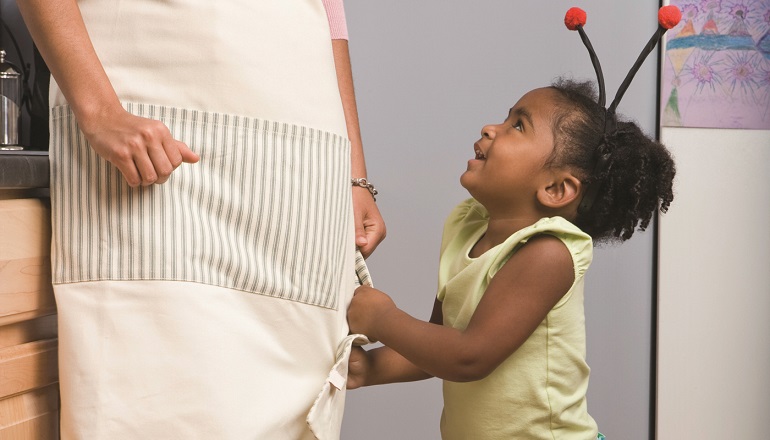When younger children misbehave, they may not really know that they are misbehaving, and can be easily distracted or physically moved. But by age three to five, a child should be more aware of inappropriate behavior.
Adoptive parents are often loath to set limits and deny a child who has had a rocky start–or fear hearing, “My real mommy would let me do it.” But it’s important to help preschoolers learn self-control. Why is this so? Studies have consistently shown that children with appropriate social skills are better able to focus on academic skills when they enter preschool or kindergarten. Also, children who are able to listen, follow directions, share, and cooperate with others will get along better with both adults and their peers.
Recently adopted children need a gradual transition to their new families’ routines and expectations. In the orphanage where Sheri resided until she was adopted at age three, the children were herded through their routines as a group. Sheri’s parents are helping her to learn to follow directions by first teaching her to stop what she is doing, look at them, and listen when they say her name.
What is Reasonable to Expect?
There is no one-size-fits-all standard of appropriate behavior. However, preschoolers should be expected to become increasingly able to:
- Function in a group setting
- Play cooperatively with a small group of peers
- Wait a reasonable amount of time for your attention, for the swings at the playground, and so on
- Take turns; listen without interrupting
- Follow simple instructions
- Comply with directives from parents and other care givers
- Use words to express their needs, anger and other emotions
- Control physical aggression
- Stay on-task for short periods of time
- Persist in difficult tasks without giving up
- Verbalize “please,” “thank-you,” and “I’m sorry”
Discipline Strategies That Work
- Be positive. Emphasize what children should do, not what they shouldn’t (“Hands in your pocket,” not “Don’t touch!”).
- Do what you say (walk the walk).
- Intervene when necessary and supervise at all times.
- Provide positive feedback more often than corrective feedback.
- Let them demonstrate competence. For example, put a stool in the bathroom so your child can wash his hands himself.
- Implement logical consequences for inappropriate behaviors, and let your child know to expect them (“If you throw that sandwich on the floor it will go in the garbage can.”).
- Keep the rules simple. (“Sit in your chair until you are finished eating”) and enforce them consistently.
- Prioritize which behaviors are most important to work on.
- Whenever possible, give children appropriate choices. (“Would you like milk or water,” rather than “What do you want to drink?”)
Preschoolers who are securely attached to their primary care givers are eager to be more independent. Preschoolers who are not securely attached may also seek as much independence as possible, but for different reasons. Stefen, who was neglected before his adoption at age four, uses manipulative behavior to keep his parents at bay. Instead of encouraging his precocious independence, Stefen’s parents require that he rely on them for food and other basic needs.
Unattached preschoolers need very strong limits, but giving a time-out is not effective because it reinforces the child’s mistaken goal of distancing himself from his parents. Alternative strategies that support attachment include being required to sit on a chair in the same room, and removing the object or person that is being mistreated. As your child learns what is expected of him as a member of your family, he will feel safer and more confident of his place.


